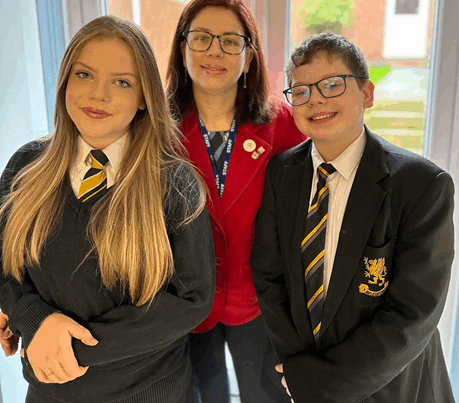Over the summer, Educake helped to sponsor Grace, a year 12 student at James Calvert Spence College in Northumberland, to take part in an environmental expedition to Costa Rica. She was part of a team learning about conservation, biodiversity, and sustainability through practical experience and cultural exchange.
We’ve loved hearing from Grace all about the projects she was involved with during her trip. Here are just a few of them!
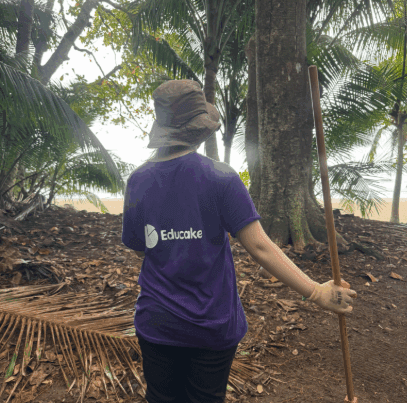
Digging trenches and reinforcing walls
In Costa Rica, the rainy season runs from May to around November. During this period, rainfall can be intense — averaging 300-450mm in one month. For comparison, the UK’s wettest months only average about 85mm. All that rain can lead to flooding and structural damage.
During her time in Costa Rica, Grace helped dig trenches to redirect the water from heavy rainfall and prevent walkways from becoming waterlogged and muddy.
Another project was to build walls made from old tyres filled with mud. These reinforced walls are stronger and more resistant to collapse in heavy rain than walls built using only mud.
Planting trees
When areas of land have been deforested, the soil is prone to washing away, contributing to increased drought during dry seasons and flooding in rainy seasons.
Grace helped plant 150 new trees near a river and more trees elsewhere to attract insects and monkeys.
Since the trees were planted on community-owned land, the group painted signs to raise awareness of the saplings and encourage people to be careful around them while they become established. Grace’s sign reads, “Let it grow” in Spanish.
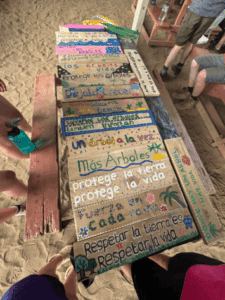
Building a new ranger station
At the national park where Grace stayed for a while, the ranger station was nothing more than a rusty van. The group began work on building a new, permanent ranger station using breezeblocks and concrete.
They also used sand, gravel and dirt to fill in some of the massive potholes on the nearby road. One of these potholes was full of water that nearly reached Grace’s knees!
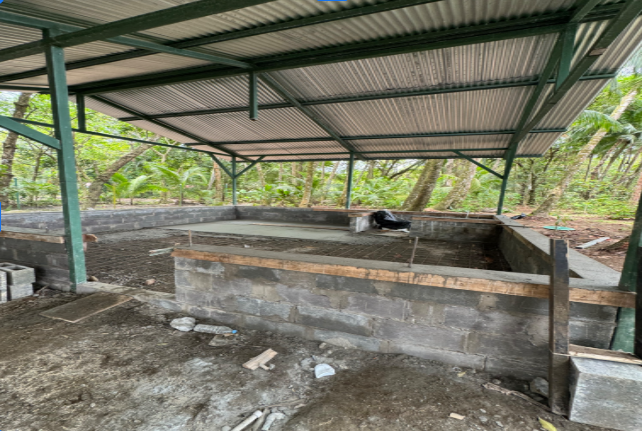
In Geography, these projects are called bottom-up (or grassroots) initiatives, meaning that they involve the local people and take place on a relatively small scale. This can mean they’re more sustainable long-term.
The projects Grace participated in link to GCSE topics such as economic development, biodiversity, food and water resources, and the impacts of deforestation.
Learn more about the environment, over a wide array of topics on our Educake platform.
Try out our free, sample quiz on Uneven Development and test your knowledge: HERE
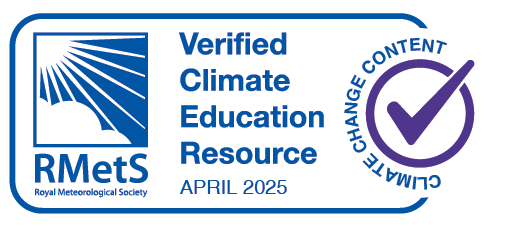
Our commitment to climate education
This sponsorship reflects our broader mission to support climate education in and out of the classroom. At Educake, we’re passionate about helping students explore the science behind climate change and empowering them to engage with the world around them.
Read about our work with Climate Ed
Explore our climate change resources for students and teachers
Educake are proud to be officially verified by the Royal Meteorological Society (RMetS) for climate education resources. To find out more, have a read of our blog here.
At Educake, we believe that climate education is future education – and we’re proud to help make experiences like Grace’s expedition possible.


